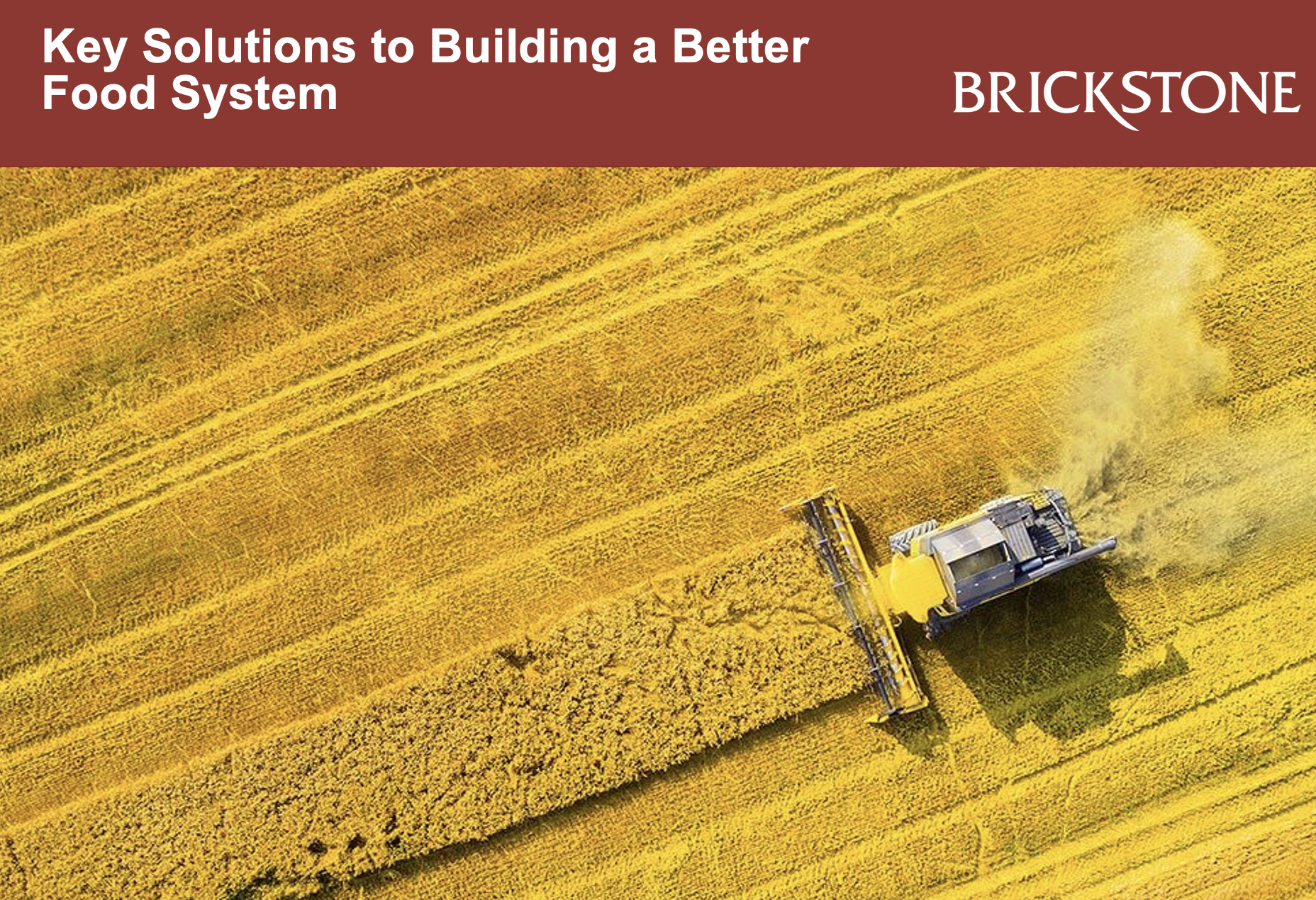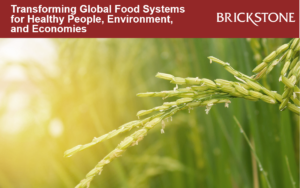Key Solutions to Building a Better Food System
In an increasingly interconnected world, the imperative to build better food systems has taken center stage. The way we produce, distribute, and consume food has far-reaching consequences, touching upon matters of health, sustainability, economics, social equity, and even global security. In this era of global challenges such as climate change, pandemics, and food insecurity, reevaluating and enhancing our food systems is not just a choice; it is a necessity.
This article by Brickstone Africa reviews the World Bank’s publication on how we can transform and build a better food system, highlighting key facts and insights.
The Need For A Better Food System
According to the World Bank’s publication, more people than ever before—828 million, according to the most recent estimates—do not know where their next meal will come from. Yet we are producing more food than ever, with cereal grain production at an all-time high. How did we get so far off track in ending hunger and how do we get back on course?
Food crises are complex, and the temptation is to fix the symptom, rather than identifying the cause. COVID-19, conflict, and climate change are among the most frequently cited causes of the current food price crisis, but the underlying systemic issue remains: We need to radically transform the way we produce and consume food.
A more stable, equitable, and sustainable food system would connect the world’s 600 million farms with its 8 billion consumers, and capitalize on the ability to both feed the hungry while mitigating greenhouse gas emissions and rapidly adapting to a changing climate. We must act now, together, and decisively, or risk more crises in the future.
Five critical actions are set out below.
Incentives: Every year, governments around the world provide $800 billion in food production incentives, leading to negative climate and environmental outcomes, while only a third of the subsidies actually reaching the farmer. Decoupling production incentives and paying farms to keep carbon in the ground while producing food—contributing towards climate action—is a key step towards building a better food system. For example, the Just Rural Transition initiative supports and amplifies innovative and ambitious policies, investments, and multi-stakeholder solutions by building an action-oriented evidence base.
Innovation: Public spending on agricultural research and development can give returns of up to 44 percent. Innovation is key to delivering more productive food systems that address global hunger and climate change at the same time. The World Bank, together with the One CGIAR Initiative, play a pivotal role across these areas to deliver global benefits. Doubling public research and innovation budgets for the food system to at least 2 percent of GDP is a start. Initiatives such as the Agriculture Innovation Mission for Climate (Aim4Climate) are accelerating this work by increasing investment in climate-smart agriculture and food systems innovation.
Institutions: Export bans and non-tariff trade-barriers are causing self-inflicted damage to the food system. Predictable and transparent institutions that can scale well-targeted safety nets such as in-kind or cash transfers to feed the poor in times of need will reduce the need for reactive policies.
Information: Uncertainty on everything from inputs to weather and prices, food availability, and how many hungry people there are and where they are can lead us astray. Everyone can use open data and it is inexpensive to replicate, so it can spread rapidly across different users. The marginal cost of delivering digital goods to network-connected devices is nearly zero. We have the ability now, today, to collect and analyze massive amounts of data on food systems and quickly react. Mandating open data from the public sector can help prevent future crises.
Investments: The majority of companies perform very poorly when it comes to climate change, progress on human rights, and contributions to nutritious diets. The private sector needs to take responsibility for providing sustainable livelihoods for farmers, decent employment for workers, and nutritious choices for consumers—without depleting natural resources—to reach SDG 2. IFC is helping to strengthen the private sector’s ability to respond to the crisis and support food production through its Global Food Security Platform.
Read more here.






